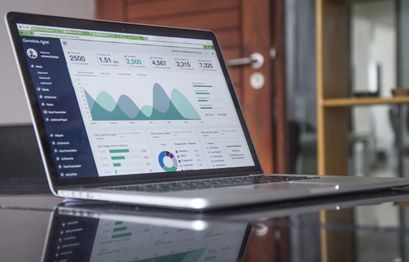Accounting is the latest professional field tofind the need to cope with the changes brought on by automation. Whether youthink these changes are good or bad is largely personal, but robotic processautomation (RPA) systems are still slowly taking over accounting andfinance departments around the country.
One of the promises of automation technology is theability to handle high-volume, standardized tasks that would otherwise take upa disproportionate amount of human work hours. Automation also promises to linkthe tasks to data analytics for advanced accounting. Both of these can be realbenefits for both individual accountants and large accountancy firms.
Technology like RPAs are also of benefit toprofessionals whose client bases’ increasingly include cryptocurrency investorsand traders. The complexity of tracking cryptocurrency strains traditionalbookkeeping techniques, but as the IRS closes in on traders, their need forprofessional accounting services is greater than ever. Automation promises tomake handling crypto clients’ accounts more manageable, but will the technologyreplace the role of the accountant entirely?
Why Cryptocurrency AccountingNeeds Automation
As cryptocurrencies and the associatedblockchain technology becomea common part of accounting practice, accountants and firms need additionaltools to keep up with the complex workload presented by the complexity ofvirtual currencies.
You can track fiat transactions in aspreadsheet or your current preferred accounting software. If you’re adeptenough at handling cryptocurrency, you can even track one currency in aspreadsheet. However, once you start working with two or more currencies,there’s no way to track everything accurately in a spreadsheet. Moreover, theIRS considers cryptocurrency to be property — notcurrency.
These are just the beginnings of thecomplications that come with cryptocurrency transactions. For example, the IRSrequires you to generate capital gains or losses based on the adjusted costbase. Tracking the cost basis and the adjusted costbase is laborious at best thanks to the extreme volatility thatcryptocurrencies can experience within 24 hours. Then, you’ll need to keep upwith the different prices offered on both difference exchanges and in differentnational markets.
Using automated technologies can ensure thataccountants not only work accurately but can work at scale, particularly as youwatch transactions reach significantly higher volumes. Automation is almostrequired just to calculate basic tax information much less help your clientsmake smarter investment decisions.
AI CouldReplace Accountants but Not for Big Investors
Given the rapid adoption rate of newtechnologies among the cryptocurrency community, you can expect a certain groupof DIY investors and tech enthusiasts to immediately gravitate towards thoseprograms; they are ideal for eliminating repetitive taskssuch as accounts payable processing. In other words, they’ll eliminate humanaccountants from the conversation, but only for a certain faction ofcryptocurrency investors. And this isn’t necessarily a bad thing: challengingaccounting principles will eat into your time and profits.
However, not everyone will choose to followthe road to AI automation. Experts believe that wealthy investors and enterprise clients will,at a minimum, want a human involved in their bookkeeping if not leading theway, particularly because everything is a taxable event. With so many eventsable to trigger an audit, many customers will pay the extra fees to avoid themicroscope.
So while you may experience a spate of clientswith crypto holdings and then watch that number drop off the cliff, you stillwant to both learn the principles of the automation software and of manuallycalculating cryptocurrency if you want to keep high-value, enterprise clients.
Accountants Benefit from Gettingto Know Cryptocurrency Platforms
In the meantime, it’s worthwhile to continue getting to know the existing platforms.Today’s account management platforms are providing the first-line response tothe problems posed both by cryptocurrency generally and by the IRS treatment ofit.
Today, there are several platforms availablethat track, organize, and manage assets using a single dashboard. These arebuilt both for individual and professional investors, and they can be helpfultools both in terms of your practice and in unifying your clients’ figures sothat you can tackle their taxes easily. Some of the tax-specific platforms include:
- Beartax
- Bittax
- Blox
- Cointracker
- Koinly
- Tokentax
- Zenledger
The majority of the current software aims tolower tax liabilities by identifying crypto losses (capital loss deductions).The popularity of tools exists for a reason: a survey found that taxpayersreported an abundance of short-term capital losses (ajump of 521% year-on-year). However, the software is not always accurate, andso it benefits from a steady hand and human knowledge of tax law. In otherwords, treat these tools as a springboard but not as the final word on aclient’s return.
Expect Big Changes in the NearFuture
Ten years on, the world of cryptocurrency is still in its infancy, but it’s ushering in some of the biggest changes in accounting in a hundred years, particularly in automation.
As accountants continue to grapple with thechallenges presented by cryptocurrency, they’re also becoming crucial advisors to investors,enterprises, and SMBs. You can expect advice and technology to change againseveral times — perhaps even in the near future. But it’s still worth gettingto know the existing platforms and rules to keep ahead of the curve.









